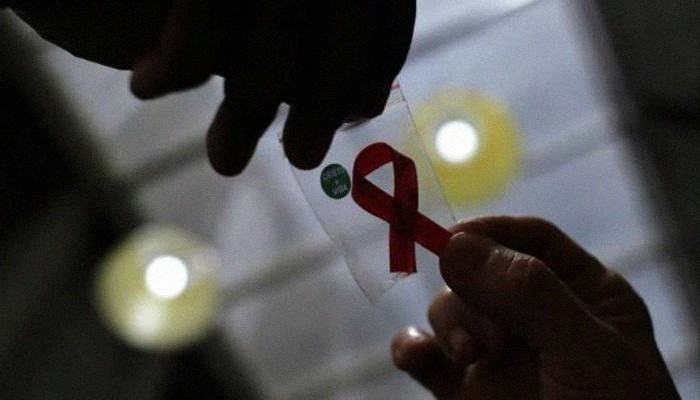Thirty-one test positive for HIV in Shikarpur
Last month over 500 HIV positive cases were reported in Ratodero district of Larkana
June 15, 2019
SHIKARPUR: Thirty-one of 2,500 persons were found HIV positive during blood screening for HIV cases in Sindh’s Shikarpur district on Saturday.
The new cases see a surge in cases of HIV in Sindh comes after over 500 cases of HIV were reported in Ratodero district of Larkana last month.
According to District Health Officer Shabbir Sheikh, 2,500 people were screened out of which 31 tested positive in Shikarpur.
Those that have tested positive were being provided treatment and other amenities according to the World Health Organisation (WHO), Sheikh added.
Last month, a report by Director General (DG) Health Sindh Dr Masood Solangi revealed 14,000 people in Rotodero district were screened out of which 534 tested positive for the HIV virus. Of these patients, 270 were female and 264 male.
The age group distribution revealed the most affected age group was 2-5 years with 294 (55.05%) cases followed by age group 6-15 years with 100 (18.7%) cases.
In the Dakhan area of Shikarpur, 300 people were screened for HIV out of which 6 tested positive, raising the number of total HIV impacted people in the area to 13.
In May, an international team of experts from WHO arrived in Pakistan to support the response to an outbreak of HIV in Larkana, Sindh at the request of the Ministry of Health.
Those affected have urged the Sindh government to make HIV medicine made readily available at private medical stores apart from government hospitals for easy access.
Citizens have also asked the Sindh government to take adequate measures to counter the disease.
In total, 76.1 million people worldwide have been infected with HIV, since the epidemic started in the 1980s. Some 35 million have died.
As yet, there is no HIV vaccine or cure, and infected people rely on lifelong anti-retroviral therapy to stop the virus replicating.
Without treatment, HIV-infected people go on to develop AIDS, a syndrome that weakens the immune system and leaves the body exposed to opportunistic infections such as tuberculosis, and some types of cancer.
Treatment carries side-effects and is costly, but allows infected people to be healthier for longer.













